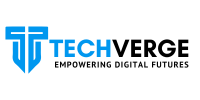Custom software development is at the forefront of technological innovation in 2025, offering tailored solutions that address specific business challenges. As companies seek to enhance efficiency and scalability, understanding the latest developments in this field is paramount.
- Low-Code and No-Code Platforms:
The adoption of low-code and no-code development platforms is democratizing software creation, enabling non-technical users to build applications through intuitive interfaces. This accelerates development cycles and reduces dependency on specialized programming skills. - AI-Driven Development:
Artificial Intelligence is streamlining the software development process by automating code generation, testing, and debugging. AI tools can predict potential issues and suggest optimizations, leading to more robust and efficient applications. - Emphasis on Cybersecurity:
With the increasing prevalence of cyber threats, integrating robust security measures into custom software is non-negotiable. Developers are focusing on implementing advanced encryption, multi-factor authentication, and continuous monitoring to safeguard data integrity. - Cloud-Native Applications:
Designing software specifically for cloud environments ensures scalability, flexibility, and cost-effectiveness. Cloud-native applications can seamlessly adapt to varying workloads and facilitate remote accessibility, aligning with modern business operations. - Integration of Emerging Technologies:
Incorporating technologies like the Internet of Things (IoT), blockchain, and augmented reality into custom software solutions is opening new avenues for innovation. These integrations enable real-time data analysis, enhanced transparency, and immersive user experiences.
Conclusion:
Embracing these advancements in custom software development empowers businesses to create solutions that are not only efficient but also future-proof. By leveraging low-code platforms, AI, and emerging technologies, companies can drive growth and maintain a competitive edge in 2025.







